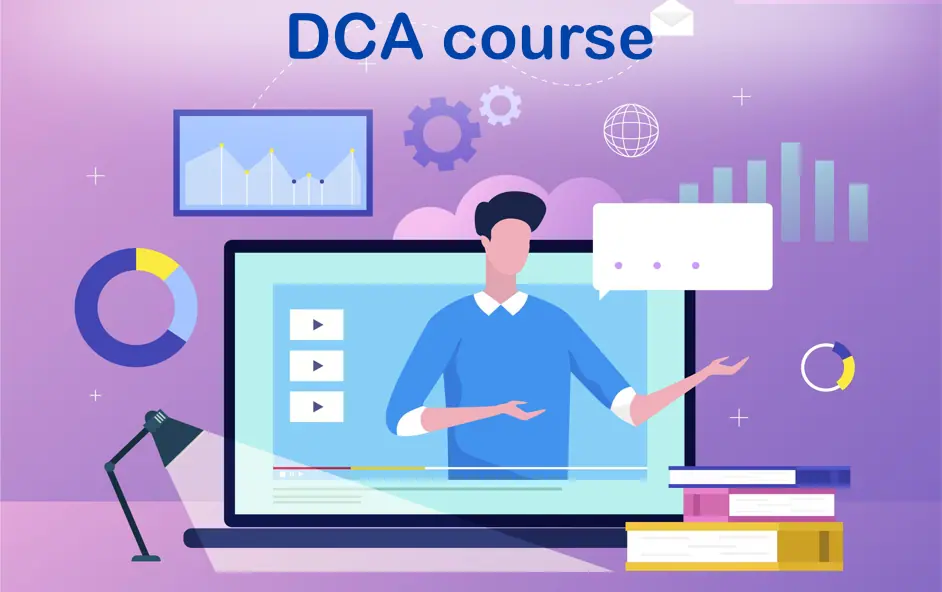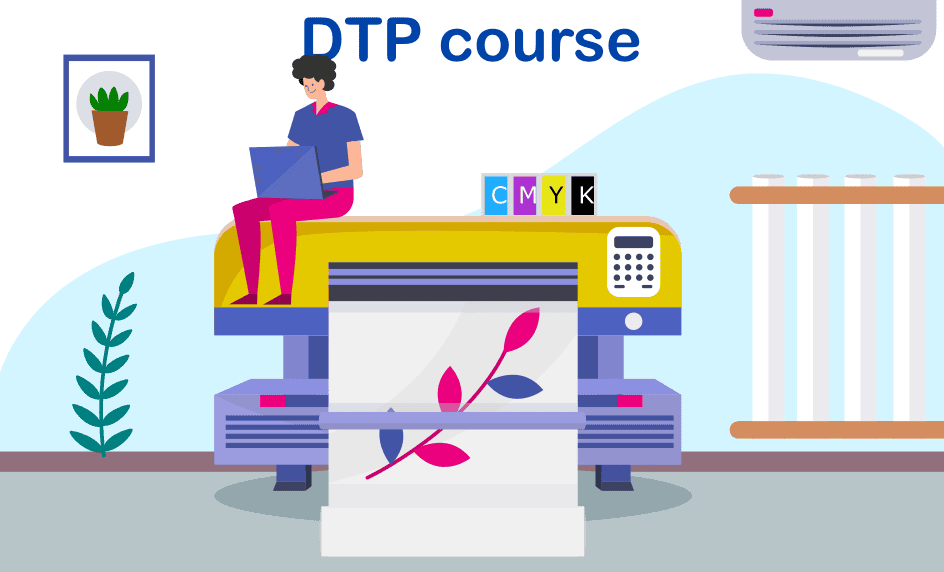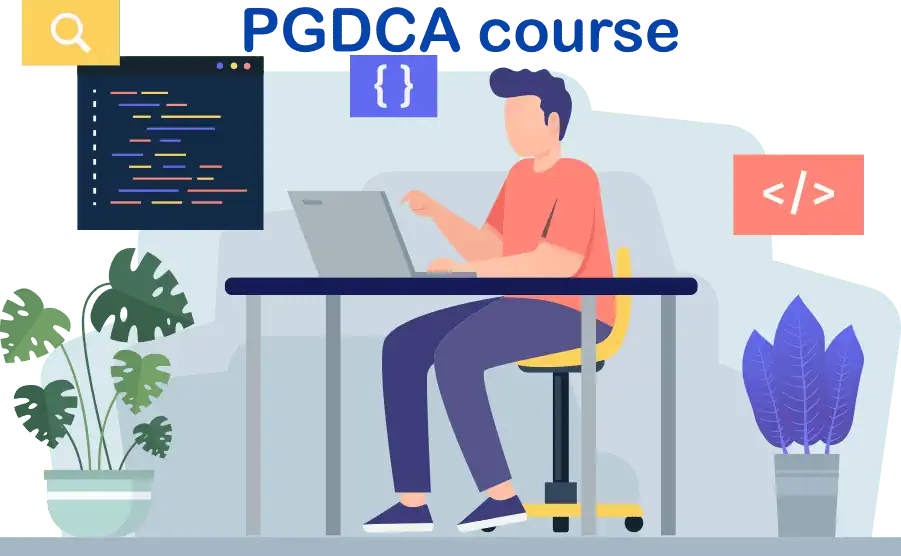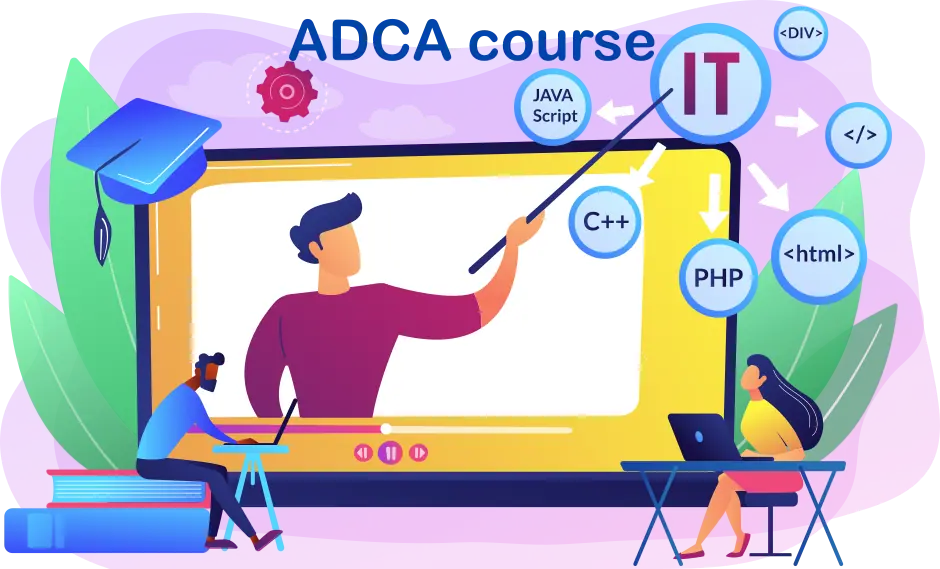The courses offered under the Diploma in Computer Applications (DCA) are immensely important for students as they equip them with the necessary fundamentals of computers to enable them to gain proper placement in today’s computerized world. Nevertheless, the efficiency of a DCA course highly depends on the quality of its framework or structure, Contents, and instructional approaches or techniques.
Given the constant improvement in technologies, educational institutions are continuously updating the DCA course. Making curriculum relevant, incorporating interactive learning experiences, and using advanced teaching tools you can expect a good and competitive program.
DCA course details
DCA’s full form is a Diploma in Computer Applications. The computer course at DCA, therefore offers a one-year diploma course that aims at equipping the student with basic concepts of computer science. Some of the areas that are taught under the DCA computer course include; Java development, network, office automation, computer, app development, and Windows operating systems, among others. These ideas are incorporated into specifics of the DCA course so that students acquire the subject-matter content and skills requisite to the job. DCA certificate awards students diplomas for computer application programs.
Duration of DCA course
The DCA course duration is a short-term program lasting six months. Originally, the purpose of this course was to equip learners with basic knowledge about computer applications, which makes it most suitable for learners who aim to gain fundamental computer knowledge and basic skills in the shortest time possible.
DCA course syllabus
Candidates can go through the DCA computer course syllabus below
- Introduction to Computers
- Project management
- Principles of Programming
- Unix operating system
- Programming language database
- Management Information Systems
- Word processing and Spreadsheet
- Financial accounting system
- System analysis and design
- C++
- Computer Graphics
Eligibility
One criterion is that the students shall meet the basic requirements for registration for the Diploma in Computer Application course. When it comes to taking the DCA computer course the institute that offers the course always has a given criterion that learners have to fulfill to get admission to the course. In India, most colleges and universities follow the following admission procedure:
- In order to be eligible for the Diploma in Computer Application (DCA) course, the candidates need to have completed and passed high school 10 + 2 from the respective board.
- Candidates who have a computer as a core or second subject after the 10th class will have an added advantage.
How is it different from ADCA and PGDCA?
Based on the fact that it is an introductory course that deals with an introduction to computers, DCA is appropriate for candidates who have just started their computer education. On the other hand, the Advanced Diploma in Computer Applications (ADCA) goes beyond the basic DCA program and ensures the clients touch on rather complex areas such as web design, programming languages & network concepts in the course. ADCA is usually longer, and it can take as long as two years.
The other is the Post Graduate Diploma in Computer Applications (PGDCA), which is for graduates and is more extensive than the other program. Areas contained within promises software development, advanced programming, database management, as well as networking, to learners who possess employment ambitions in the IT field.
Admission process
Regarding the admission requirements, the students of DCA Admissions should visit the institute’s website. The application form and the admission process typically happen between April and June. There are no entry tests needed for joining this course program.
Steps to Apply:
- Passed 10th or 12th standard of a recognized board, and there is no upper or lower age limit prescribed; however, 16+ years preferred.
- Registrations are done online on the institute’s website through a form that also provides spaces to upload relevant documents. If it is offline, they will require you to fill out a form and attach relevant documents. After completing this, hand in the documents to the admission office.
- Almost all the institutions provide direct admission to the relevant courses.
- Submit the admission fee through online fund transfer, demand draft, or deposit and Get an acknowledgement email or letter and retain the copy.
- Documents Required: Board exam marks cards, interview letter/identity proof, photograph, and transfer/migration certificate (if required).
Top institutes
Some institutes that offer a Diploma in Computer Applications are the ones mentioned below. You can prefer the DCA institute near to your place. DCA course fees range between Rs 5000/- to Rs 20000/-. But we recommend you always check with colleges and institutes regarding fees.
A few of the institutes are:
- Institute of Skill Development Training
- DOTNET institute
- National Institute for Digital Learning (NIDL)
- BCIT World
- Institute for Advanced Computer Technology – IACT
Jobs, Salaries, scopes
Jobs and Salaries of DCA-certified
The jobs that are available for successful candidates in the DCA include computer knowledge-based employment opportunities within both the private and the public domain. Entry-level roles often include:
| Job Position | Job Role | Salary per Month |
| Data Entry Operator | Managing and entering data into systems. | INR 12,000 – 20,000 |
| Computer Operator | Handling basic computer operations in offices. | INR 10,000 – 18,000 |
| Accounts Assistant | Using tools like Tally for accounting tasks. | INR15,000 – 25,000 |
| Web Assistant | Supporting basic website operations and maintenance. | INR 15,000 – 25,000 |
| Customer Support Executive (IT-related roles) | Assisting customers with basic technical support. | INR 12,000 – 22,000 |
Scope of DCA course
DCA offers basic computer competencies, and hence, upon graduation, producers qualify to work in almost every sector that utilizes computers, such as the IT sector, teaching, healthcare, and the business world. As indicated, the course is particularly useful for small businesses and entrepreneurs who may wish to transition to digital business models.
Higher Education After DCA
Students who wish to enhance their qualifications and career prospects can opt for:
- Advanced Diploma in Computer Applications (ADCA): The second level of DCA with more complex matters.
- Bachelor’s Degrees: Programs like BCA (Bachelor of Computer Applications) or B.Sc. It provides more insight and better options.
Specialized Certifications: Some examples include web development, graphic design, or information security, which go a long way in enhancing employment prospects.
Private and government job opportunities
Private Sector: DCA-qualified students can fit in clerical and IT support positions in IT firms, banks, schools, and small businesses.
Government Sector: They include jobs with political parties, schools, or on government-endorsed projects where people with such skills are enlisted as data entry clerks or computer operators.
Further specialization takes DCA graduates to the next level of job remuneration and job content, which are better paid and involved than DCA jobs.
Conclusion
A diploma in Computer Applications or DCA has to be offered as a course that needs improvement in the delivery details to meet the challenges posed by the rapidly growing technological environment. This way, institutions can greatly enhance the course’s learning value by increasing the course’s relevance by making the tools and technologies taught in the curriculum more up-to-date, incorporating more practical and applied learning approaches, and applying innovative pedagogy.
Did you like the content? If yes, you would like other computer courses, which we have elaborated in detail. Check out below:



